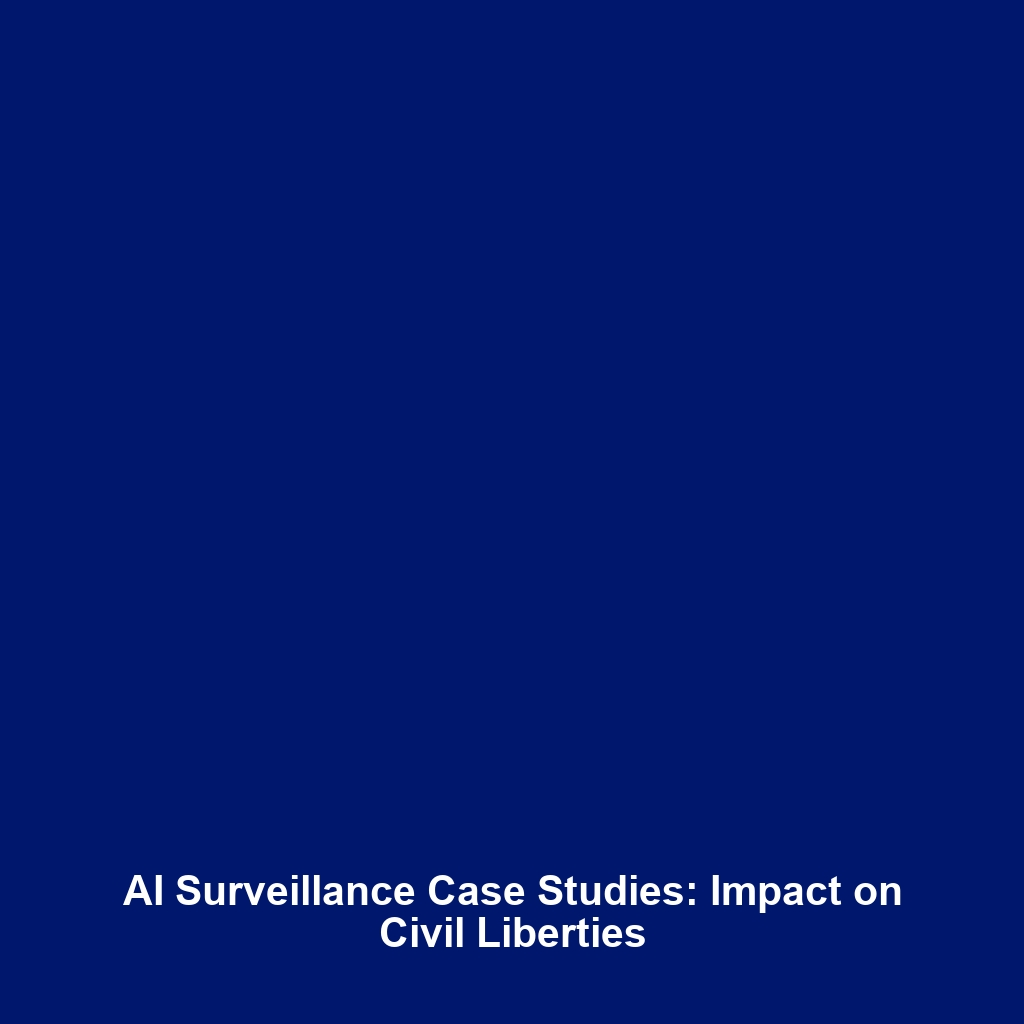Case Studies of AI-Driven Surveillance and Its Impact on Civil Liberties
Introduction
The rapid advancements in artificial intelligence (AI) technology have ushered in a new era of surveillance, raising pressing ethical concerns regarding civil liberties. Among the most controversial implementations is China’s social credit system, which epitomizes the intersection of AI technologies and state surveillance. This article delves into various case studies involving AI-driven surveillance systems and evaluates their significant implications within the broader framework of AI Ethics. Understanding these dynamics is crucial as societies grapple with balancing technological progress against the fundamental rights of individuals.
Key Concepts
AI-Driven Surveillance
AI-driven surveillance refers to the use of artificial intelligence algorithms to monitor, analyze, and interpret behaviors and activities of individuals or groups. This encompasses various technologies, including facial recognition, social media monitoring, and data analytics.
Civil Liberties
Civil liberties encompass the freedoms and rights afforded to individuals, such as privacy rights, freedom of expression, and due process. The implementation of AI surveillance systems can jeopardize these rights, posing ethical challenges regarding individual freedoms versus state security.
Applications and Real-World Uses
The real-world applications of AI-driven surveillance systems, particularly regarding their impact on civil liberties, are most prominently exemplified in the following ways:
- China’s Social Credit System: This system uses AI to rate citizens based on their behavior and trustworthiness, affecting their access to resources like transportation and finance.
- Facial Recognition Technology: Widely used by governments and corporations for identifying individuals in public spaces, often leading to concerns about oversight and misuse.
- Predictive Policing: Implements AI algorithms to predict criminal activity, raising questions over bias and the potential for infringing on civil liberties.
Current Challenges
There are numerous challenges in studying and applying case studies of AI-driven surveillance as it relates to civil liberties, which include:
- Data Privacy Concerns: The extensive gathering of personal data raises alarms about privacy invasions.
- Transparency Issues: Many AI systems lack transparency, making it difficult to assess their impact on civil liberties effectively.
- Ethical Limitations: The use of AI in surveillance often encounters ethical dilemmas, particularly around consent and accountability.
Future Research and Innovations
As technology evolves, research on AI-driven surveillance and its impact on civil liberties is projected to flourish. Innovations may include:
- Enhanced Transparency Tools: Developing methodologies that allow users to understand AI decisions and algorithms better.
- Bias Mitigation Technologies: Focusing on techniques to reduce bias in AI surveillance systems, thereby protecting civil liberties more effectively.
- Global Regulatory Frameworks: Creating comprehensive regulations that protect individual rights while enabling technological advancements in AI surveillance.
Conclusion
The examination of AI-driven surveillance through case studies such as China’s social credit system illuminates the pressing need for an ethical framework that prioritizes civil liberties. As society continues to innovate and integrate AI technologies, it is vital to remain vigilant in protecting individual rights amidst advancing surveillance capabilities. For further insights, consider exploring related topics on AI Ethics or the implications of surveillance technologies.
